How to Make a Plan for Affording Senior Living
Don't have time to read this now? Download a pdf version instead.
Introduction
For most of us, the thought of finally being able to retire, kick back and enjoy yourself -- spending time however you like -- sounds just wonderful. Senior living at its finest. Unfortunately, the thought of paying for senior housing and care services as you grow older can be daunting, to say the least. For those who have little to no savings and rely primarily on Social Security benefits, it can be especially worrisome.
Yet, think about it we must. Experts predict that more than half – possibly as many as 70% -- of Americans will need some type of long-term care after the age of 65. That need might never be more than assistance with daily living tasks, but it could also be substantially more intensive in the case of chronic illness, or memory loss, or both.

For past generations, aging meant moving in with adult children, who then served as caregivers until they could no longer do so for functional or medical reasons. Then, Mom or Dad moved into a nursing home to live out their final days. Things are different now. We likely have fewer adult children than families had in the past (or none at all). If you have them, they probably live far away. They may not be in a position to take you in and care for you. And – most likely of all – you want to maintain your independence as long as you possibly can.
The reality, though, is that you will eventually need help – from professional caregivers if not from your family. The National Investment Center for Seniors Housing and Care says that by 2029, 20% of middle-income seniors will have three or more chronic medical conditions and need assistance with at least one daily living task, such as bathing or eating. About 60% will have mobility issues.
There Are Good Reasons to Be Concerned
Average life expectancy in this country is now about 78 years (81 for women, 76 for men). Once you stop working, will you have enough money to cover your living costs for the remainder of your life, even if you require ongoing assistance or medical care at some point?
 Americans in recent decades have been notoriously poor savers. And many lost a big chunk of their savings as a result of the Great Recession. The National Opinion Research Center (NORC) at the University of Chicago predicts that by 2029, nearly 8 million Americans over 75 will not be able to afford assisted living but will not be poor enough to qualify for Medicaid.
Americans in recent decades have been notoriously poor savers. And many lost a big chunk of their savings as a result of the Great Recession. The National Opinion Research Center (NORC) at the University of Chicago predicts that by 2029, nearly 8 million Americans over 75 will not be able to afford assisted living but will not be poor enough to qualify for Medicaid.
You won’t know what is “affordable” without doing your homework. Assumptions and misconceptions can make you feel unduly disheartened on the one hand, or overly-confident on the other. Getting the facts, as early as possible, will help you make the best decisions and bring you greater peace of mind. That’s priceless.
By 2030, says the US Census Bureau, 20% of Americans will be over 65. You will have plenty of company as you search for the right senior living option. That’s just one reason it is so important to plan ahead.
How Much Money Will You Need?
That’s a good question. It’s one that is difficult to answer, though, because there are so many variables and you have no crystal ball. However, you can get a pretty good idea what senior living - as you envision it for yourself - costs now. That will give you a starting point for planning, whether you’re considering a near-term move to a senior community or you aren’t even a “senior” yet.
First, Learn about Senior Living Options
Independent living, assisted living, memory care, and skilled nursing are all different and you have no idea which you will need. Maybe all of them. Costs vary by type of care, overall quality of the community and staff, and other factors. Payment varies, too. Some communities require a significant buy-in fee, others charge by the month, etc.
Make a list of what matters most to you (where and how you want to live), then start researching senior living options in your area. You’ll find excellent tips and advice in our free guidebook, “How to Choose a Retirement Community.” When you’ve narrowed your list, you will definitely want to visit, perhaps multiple times, to get a real feel for the surroundings and the people.
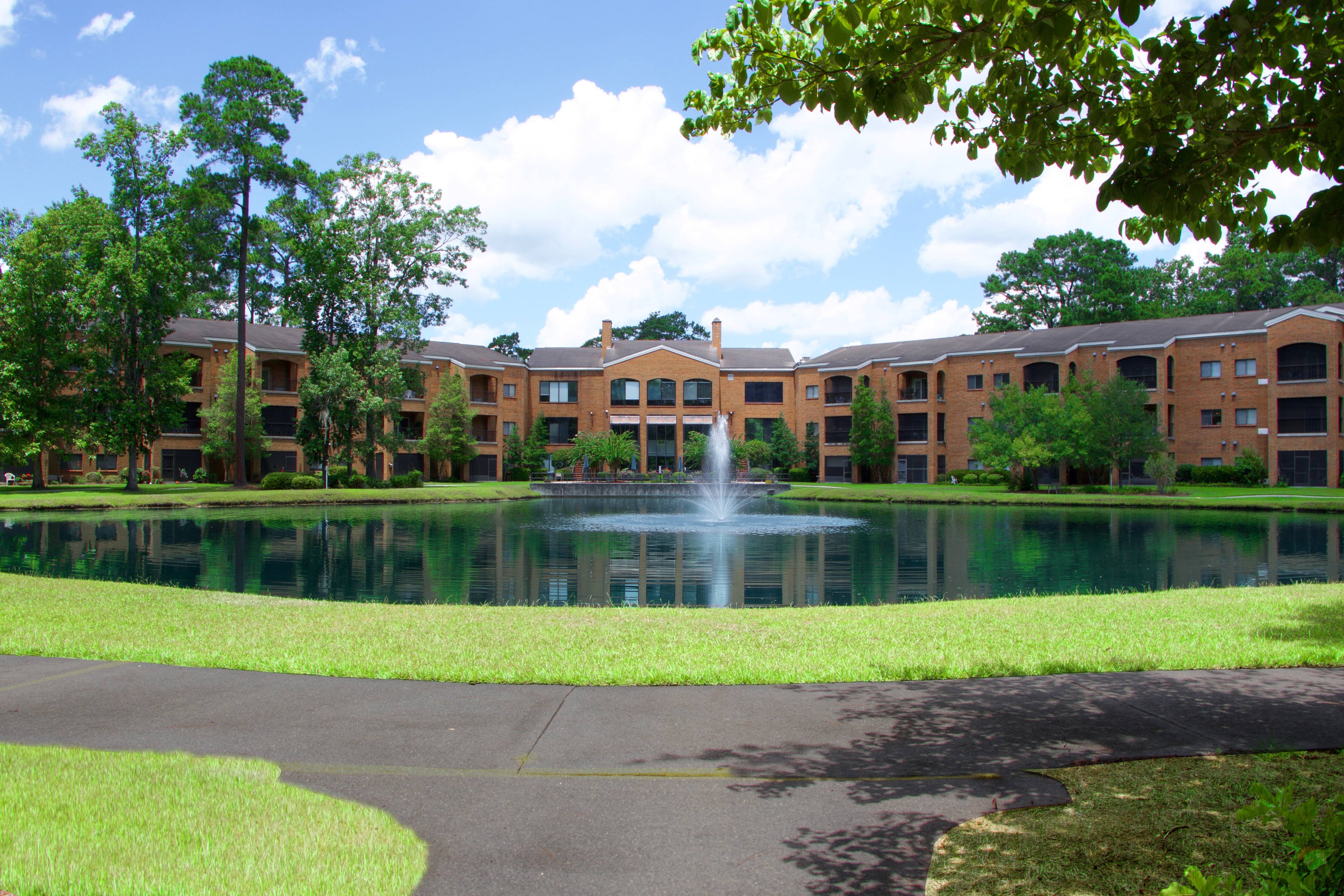
Aim for Your Ideal
But recognize that you will likely have to make some compromises based on your finances, care needs and what is available when you finally have to make a change. Think about your priorities. For instance, is keeping your beloved pet with you more important than a more spacious apartment? Would you rather live in a peaceful, natural setting or close to a vibrant downtown and shopping?
Nearly all seniors face the same, serious conundrum: costs (for everything) will continue to rise over time, while your resources to pay will steadily diminish. There is some potentially good news here, though. As your resources dwindle, your eligibility for financial assistance will increase.
Once you have penciled out your ideal senior living situation, keep an eye on costs as time goes on. You can be sure prices will increase. But following the trends will help you wisely and realistically monitor (or modify) your savings plan.
While it’s never too late to prepare as best you can, the earlier you start, the better positioned you will be to take advantage of all the choices available to you. Even if you are very comfortable with your level of retirement savings, planning ahead can help you conserve those resources rather than spending them unnecessarily. You’ll be able to do more traveling while you are still healthy enough. Or leave your children, grandchildren, and/or favorite charities a larger financial legacy.
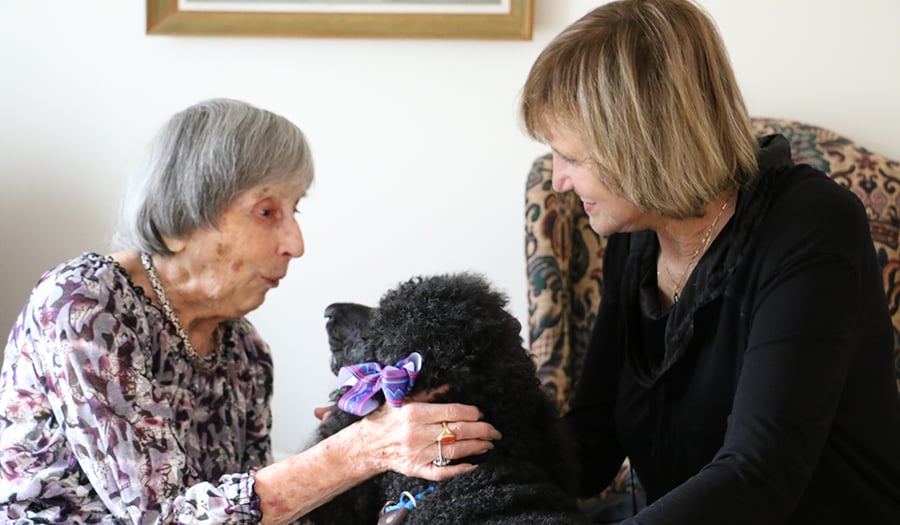
The following chapters discuss the financial ramifications of senior living and how to plan successfully for your retirement. We’ll look at what you can do right now, even if you’re already in your 70s, to afford senior living. Then we’ll step back in decades to explain what you can be doing in your 60s, 50s, and 40s to ensure you will be able to afford the type of senior living you hope to enjoy when the time comes.
Core Benefits that May Help Cover Senior Living Costs
For most people, paying for any type of senior living accommodations and services is your personal responsibility. Whether or not you will be eligible for any type of financial assistance depends on the type of facility you live in, the amount and type of assistance you require, and your own ability to pay. It also depends on what state you live in. For example, although Medicaid is a federal program, each state determines what (and who) is covered or not, and to what extent.
Don’t make any assumptions about what might be available or whether you might qualify! Check out every possibility so you have a complete picture of your options. One resource that makes your search much easier is BenefitsCheckUp, a free service provided by the National Council on Aging. All you have to do is enter your ZIP code, and you will be able to see federal, state, and even local programs that may apply to you. These cover everything from medications and health care to housing, saving money on your taxes, veteran’s benefits, income assistance and more.
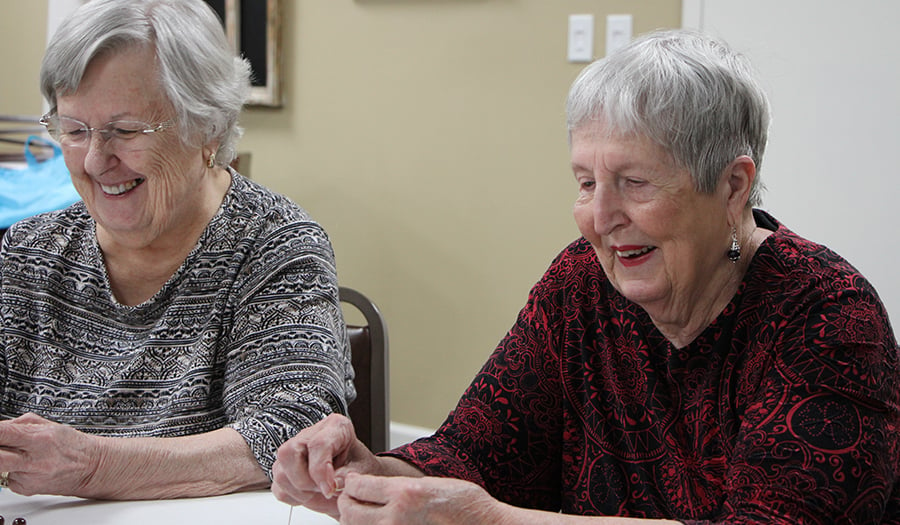
Medicare
Perhaps the most dangerous misconception many Americans have about senior living is that Medicare will cover some or all of their expenses. This is wrong. Medicare is health insurance. As such, it does not pay for assisted living housing or personal care services. It does provide the same medical coverage whether you live in an assisted living facility or you are fully independent.
Medicare also covers part of the cost of rehabilitative or skilled nursing services, but only up to 100 days. This can come as an upsetting surprise to seniors and their families who don’t realize the 100-day limit exists. At that point, you must either leave, pay the full cost out of pocket if you want to stay, or apply for Medicaid coverage (if you qualify).
Medicaid
Like Medicare, Medicaid is a federal program. However, every state sets its own rules for eligibility and coverage. While some states provide funding beyond Medicaid to help low-income residents afford, the state of Georgia does not have any programs that cover independent or assisted living.
Medicaid does pay for skilled nursing, in every state including Georgia, if you meet the financial eligibility requirements. Essentially, this means Medicaid may become your “safety net” if you have depleted your other resources.

Veterans Benefits
The VA’s Aid and Attendance Benefit is a pension designed to help veterans pay for assisted living expenses. For example, the 2019 benefit for married veterans is a maximum of $2,230 per month ($1,881 for single vets). However, eligibility criteria are complex and if you qualify, it can take several months to be approved and start receiving money. Like Medicaid, this VA benefit sets maximums for income and assets or net worth in order to qualify. The income limit is similar for both programs but asset calculation differs significantly. So, you may qualify for one but not the other.
If you are eligible for both Medicaid and Veterans Aid and Attendance, you will want to carefully compare the coverage differences, because you cannot take advantage of both programs simultaneously. That said, if you are married, it is OK for one of you to receive Medicaid and the other to receive the Aid and Attendance Benefit.
While the veteran’s benefit can be applied to assisted living, it does not cover skilled nursing care to the extent that Medicaid does. So Medicaid is generally considered the better option for residents of skilled nursing facilities.
Other Benefits and Funding Options
Once you stop working, your income will depend on Social Security benefits, retirement savings, pension benefits, and/or interest and dividends from investments. It may not be enough. And, depending on your health and your medical insurance coverage, increasing medical needs could take a big bite out of your post-retirement income.
This is why it’s so important to look into every possible source of financial support that can help you afford housing and long-term care. Not all will apply to you, but you’ll never know if you don’t do your homework. This is no time to leave money on the table, as they say.

Wait to Collect Social Security
You can start drawing Social Security benefits at age 62, but the longer you wait the larger your check will be. If at all possible, wait until you are 70. You can get an idea how much you’ll receive (in today’s dollars) by using the benefits calculator.
Retirement Savings
Just because you have already retired doesn’t mean you cannot continue to save, if you have the means. And if you’re still working, the younger you are when you start saving for your senior years, the more money you can accumulate. Traditional and Roth IRAs and your company’s 401(k) program (especially if they match contributions) are all easy ways to save. Talk to your financial advisor about the taxation difference between standard and Roth IRAs and how your age may impact which type is best for you.
Pay Off Debt
Debt nullifies the value of your savings because the money isn’t available for other things. Paying off debt or keeping it as low as possible enables you to save money for the future.
Inventory Your Assets
If you own investment property in addition to your own home, you can continue to receive that income as you age. But you might also want to sell to raise cash to pay for retirement housing and/or care. Ultimately, you will likely have to make the difficult decision to sell your personal home, but with a senior living plan in place, you can look forward positively to the change.
Long-Term Care Insurance
Most experts say this is a must-have, though few Americans have yet taken advantage of the opportunity. These policies can cover costs for assisted living, skilled nursing, and medical costs not usually paid by health insurance. As with all insurance, it is critical to know exactly what your policy covers and how the financial side works. Will your premiums rise over time? Will your coverage change?
You can purchase long-term care insurance at any age, but age and health both affect the premium -- if your health is poor, you may be denied. The best time to buy is when you’re in your 60s. More good news? Spouses can often save money by purchasing long-term insurance together.
It’s important to note that, if you have disability insurance, it probably will not pay for long-term care.
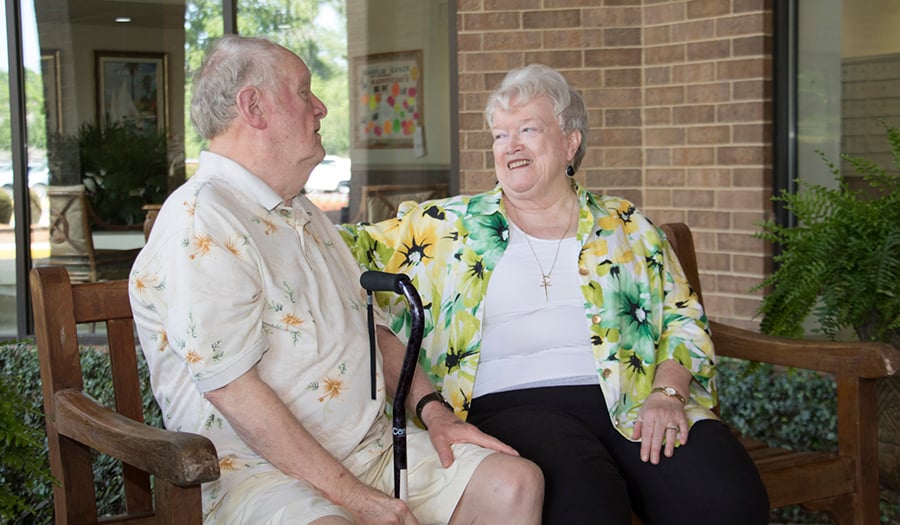
Life Insurance
There are several types of life insurance, so it is especially important to discuss these options with your agent. Other than basic term policies, life insurance often gives you the choice of cashing in early or borrowing against the value of the policy. There are also hybrid policies that serve as both life and long-term care insurance. Policies that offer maximum flexibility can be especially helpful for funding senior care options.
Home Equity Line of Credit (HELOC)
You can borrow against the equity in your home (something you may have done in the past to help pay for other major expenses).
Assisted Living Bridge Loans
If you are waiting for final approval of veteran’s Aid and Attendance benefits, or waiting for your home to sell, an assisted living loan can give you the cash you need right away to get settled in your new situation. Then, when your benefits kick in (VA benefits are retroactive to when you applied) or your home sells, you can use that money to repay the loan. Typically, these loans are for periods of two years or less.
Contributions from Family
If your adult children are financially able to contribute, they may wish to help pay for your assisted living or other long-term care needs.
Reverse Mortgage
This may be an option if you own your home and only one spouse will be moving into assisted living.
Senior Communities You’re Considering
Some retirement communities have special programs in place to reduce costs for residents with limited means. So always ask about that! At Magnolia Manor, our Supportive Housing program subsidizes independent living within our Americus and Macon communities.
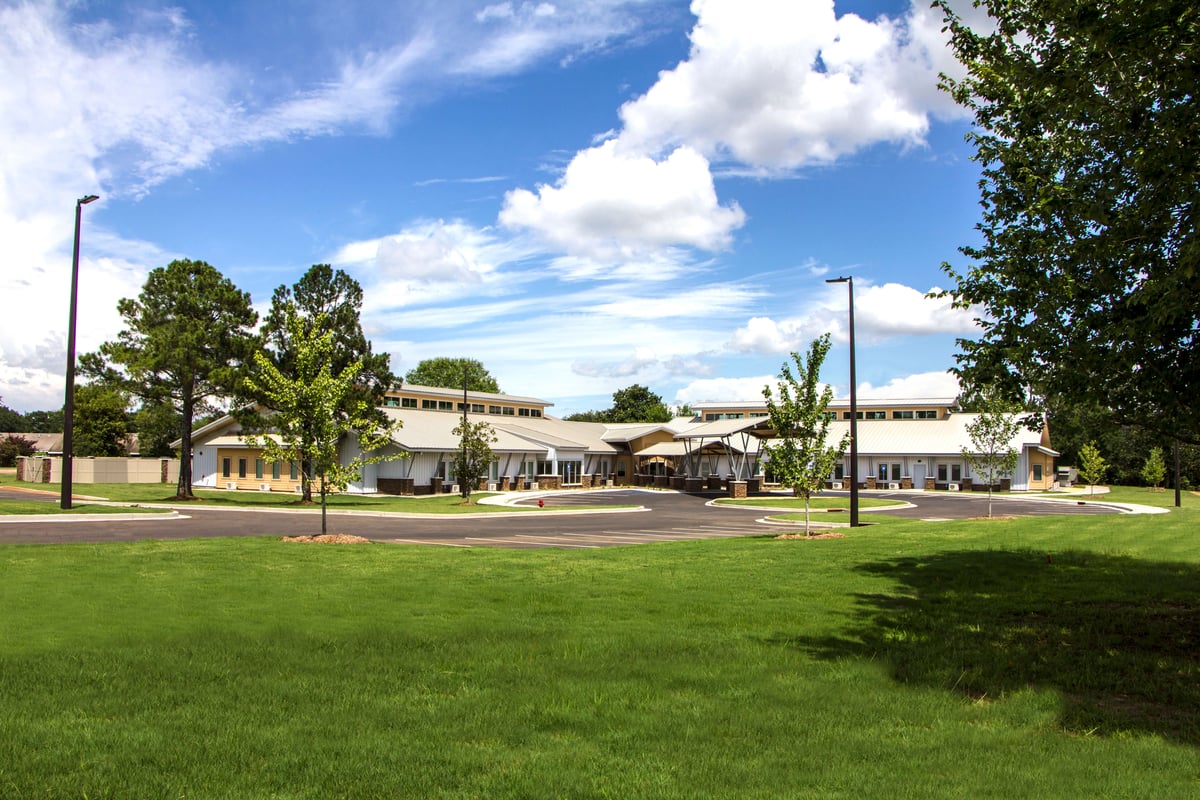
The most important thing to remember is that government programs, especially HUD, Medicaid and Veterans Aid and Attendance, are complicated. It can be difficult to understand if you qualify, and how to apply. In addition, everyone’s circumstances are different. Therefore, one of the smartest moves you can make is to get help and advice from qualified professionals such as your attorney, accountant, and/or a certified financial planner. Do make sure your financial advisor is a fiduciary. Fiduciaries are required by law to work only in your best interests, regardless of whether they benefit from your decisions.
With these people on your team, you’ll be able to make well-informed decisions tailored to your hoped-for lifestyle as well as your care needs.
Affording Senior Living in Your 70s+
Many Americans are still enjoying excellent health and complete independence in their 70s but the truth is none of us can predict when that will change. If you are diagnosed with a medical condition that will ultimately mean you need assistance, you will still have some time to make plans.
But what if you have an emergency? A fall, a stroke, or a devastating heart attack can happen without warning. You may have to stay in a rehabilitation facility while you recover. At Magnolia Manor, we know that all too often, those who come to stay with us for rehab discover that they are not able to move back home and fend for themselves. If that happens to you, you’ll need to make long-term senior living arrangements almost immediately.
Another common scenario for older couples is that one is caring for the other. If the caretaker dies or becomes incapacitated, the other spouse must now find a different living situation where assistance is available. That’s hard enough under normal circumstances, but overwhelming when you’re grieving.

Don’t Wait Any Longer!
You want to make the best decisions possible for yourself while you are still mentally and physically strong enough to do so. You don’t have to do that alone! Ask family members or friends to help you evaluate options. Their objectivity and realistic approach can be a tremendous blessing in making senior living decisions that are so emotional as well as practical. There are even services that can help you find senior living options that match your needs and budget. This can save you time as well as frustration.
If you’ve already done some research but don’t yet have a list of preferred communities, now’s the time to visit. If you’ve already had some tours, visit again. Picture yourself living here. The stronger the sense of community, the more likely you are to feel at home. So pay particular attention to the people – staff as well as residents. And ask about the spiritual side of their care continuum, because living life to the fullest as you age requires nourishing your soul as well as your body and mind.
Ask to be added to their waiting list. Because so many communities (especially the most sought-after ones) have lengthy waiting lists, your choices will be much more limited if you need to make a last-minute decision.
Talk to your doctor about your health status and long-term prognosis. Think about any health challenges you now have, any memory concerns, or daily living tasks that are becoming difficult. Be honest with yourself. Ask family and friends if they’re seeing any changes you don’t notice.
Talk to your financial advisor. If you must move soon, is now a good time to convert your life insurance into cash? If you’re still living independently, how can you continue to conserve the resources you have?
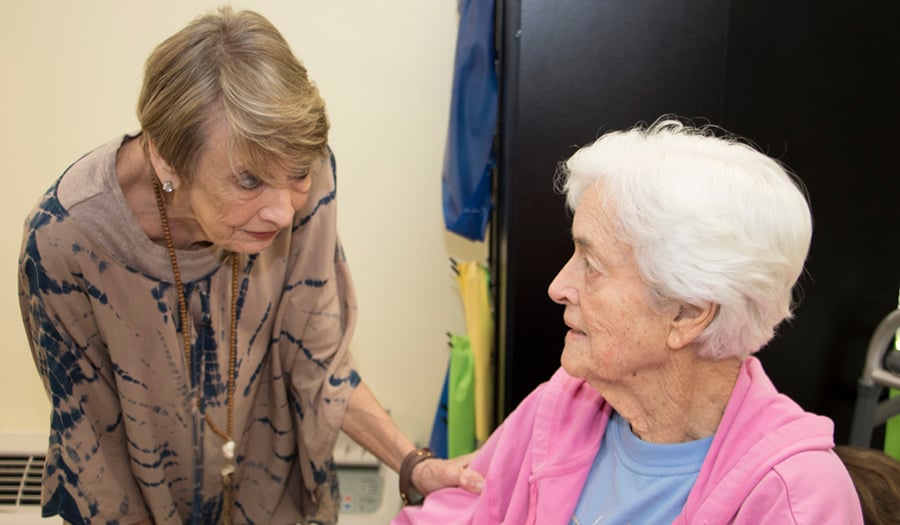
Consider Selling Your Home
For seniors who are homeowners, this is almost always the most gut-wrenching decision. Your home symbolizes your independence. What if you can no longer life in it safely? And what if just one spouse needs to move into a different senior living situation?
Selling now will relieve you of the financial and physical burdens of payments and upkeep. You will get a lump sum in cash, depending on your equity and sale price. You can use that to finance your move to assisted living. A short-term assisted living loan can give you the cash you need right now, pending the sale of your home, if you’re caught off-guard without other resources.
Even if there is no pressure to sell right away, downsizing now can be a smart, proactive measure to reduce expenses and increase retirement savings.
Considering asking family for financial assistance, if you need it. If you loaned or gave them the down payment for their first home, for example, they may want to help you out in a similar way.
Make sure your family and key medical providers know your senior living plan. You should have a will and a living will that instructs medical professionals about your treatment preferences should you become incapacitated. A power of attorney is also important, so someone has authority to act on your behalf if needed.
Planning for Senior Living Expenses in Your 60s
Keep working. You may be excited about your nearing retirement date, but you’ll need all the resources you can muster to pay for that retirement, especially as your care needs change. For every year you work beyond 65, your Social Security check will increase, up to age 70. Using the SSA benefits calculator to see what you’ll receive at 70 versus even a year or two sooner can motivate you to keep waiting to ring that retirement bell!
Keep saving. Think of your final working years as the “big push” to strengthen your retirement accounts.
Talk to your financial advisor about shifting your investment strategy, now that you’re getting closer to retirement.
Talk to your family about your wishes. This can feel uncomfortable, but it is critical that the people closest to you clearly understand what you want. Work with your attorney to ensure you have an up-to-date will. If there are household items or other belongings you want to give to someone specific, consider doing that now. You will also need a living will and a power of attorney, so others can make medical, financial and other decisions on your behalf, if need be.

If you don’t have long-term care insurance, purchase it now.
Talk to your doctor about any health concerns. Discuss your family history and longevity patterns as well as your own health.
Review any major house renovations or other work that may be necessary to see if they make financial sense. Enlist the help of an experienced real estate agent to help with your cost-benefit analysis.
If you have not already done so, visit senior living communities in your preferred areas to learn more about them and build a “shortlist” of your favorites. If you and your spouse are different ages, remember that one of you may need assisted living or long-term care well before the other.
Thinking Ahead to Senior Living in Your 50s
If you haven’t already started thinking about how to pay for your senior years, now is the time to get busy, say financial planners. It’s so easy to put it off. You’ve been waiting till the kids are out of college (because who can think of saving while paying those costs!). Or you want to enjoy your future retirement for a while before facing what next steps might be in store for you. The problem is, you will keep fretting about “what will happen to me” until you make a plan.
Peace of mind starts with knowing you’re doing something constructive. And the more you do now, the better off you’ll be then.
Meet with your financial advisor regularly to discuss your retirement savings and strategy as well as your financial plan for senior living. Periodically review the funding programs and other options listed in chapter 2. Are there any you ignored previously that now seem more appropriate? You can also educate yourself about financial management for seniors by joining AARP, attending seminars, and so on.

If you have health concerns that might require assisted living sooner than for most people, talk to your doctor about that now.
Save as much as you can. As your income rises, make sure you are increasing contributions to your retirement accounts and investment accordingly. Once you’re in your 50s, the government actually allows you to contribute more to IRAs, etc. as well as company pension plans. Do not withdraw money from your retirement accounts – there may be tax penalties, plus you will lose the earning power of that invested principal.
This is a good time to investigate long-term care insurance options. Most experts (including Consumer Reports) agree it makes better financial sense to wait till you reach 60, as chances are slim you’ll need the insurance before then. Your premiums may be a bit higher then, but instead of spending on unnecessary insurance in your 50s, you could be investing that money in another manner.
Consider downsizing now. You’ll save money on living expenses and gain flexibility for the future so you don’t feel overwhelmed in your 60s and 70s. If you’re amenable to moving into an independent living community rather than waiting till you need assisted living or memory care, note that some communities accept new residents as young as 55. (Residents can join us at Magnolia Manor at age 62.) Download our free guide, “The Process of Moving into a Retirement Community.”
Protecting Your Future by Planning in Your 40s
What’s it like to be a senior? Talk to your parents and grandparents about their fears and frustrations. If you’re in your 40s or 50s, you may be helping a parent or other loved one right now, as they consider senior living alternatives and how they will pay. Everything you learn in this process will help you, too, as you look forward to your own future health and housing needs. What do they wish they had known when planning for their own senior living?
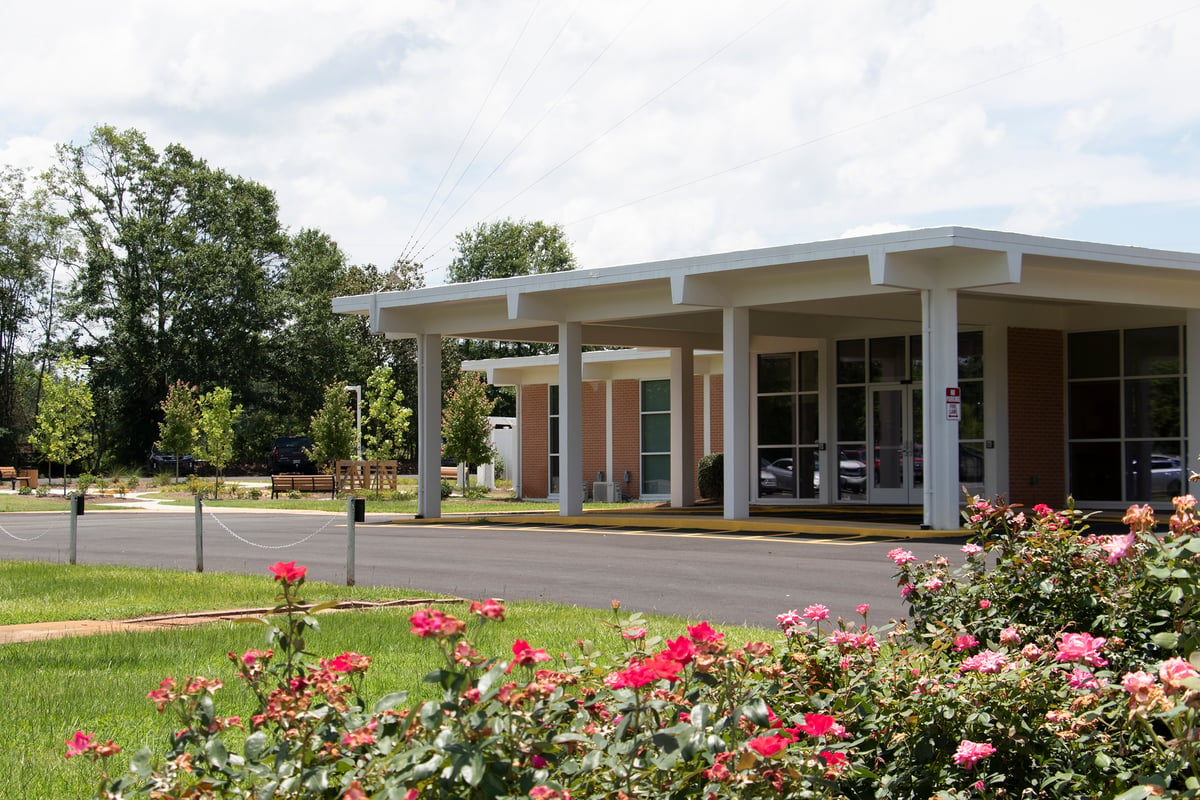
Talk to your spouse about the future, especially your desires for living arrangements when you’re older, to make sure you’re on the same page.
Review your finances and retirement savings with an accountant or other professional financial advisor. If you aren’t saving already, start now. Does it make sense to create a separate savings account for senior living expenses? You cannot rely on whatever you receive from Social Security to cover your senior living expenses. It’s early now, but using their online benefits calculator will show you just how important it is to save for your retirement living and care. Focus on getting out of debt so you can maximize retirement savings.
Contribute as much as you can to your 401(k), IRAs, etc. because saving a bit more now will pay big dividends later. If your employer offers a pension plan, find out how the benefits actually work. If you change jobs, talk with your financial advisor to determine whether it’s smarter to leave that money invested where it is or transfer it to another retirement account. Talk to an insurance expert about what makes sense at this age.
Look into life insurance options, if you haven’t already done so. Life or hybrid life and long-term care policies help protect your family as well as you in the event you become incapacitated. You will undoubtedly want some type of long-term care insurance, but wait till you’re around 60 to purchase that.
Conclusion
As we noted at the beginning, it is never too late to make financial decisions regarding senior living alternatives. But it is never too early, either. And the sooner you start, the more choices you will have when you’re ready to retire, or when life throws you a curveball and you find yourself needing assistance with daily living sooner than expected.
Planning to afford senior living is not quite the same as planning for retirement. If you merely stop working at a certain age and you’ve accumulated enough resources, you can continue to live your life as usual, in your own home. You may decide to move into a smaller home in a retirement community, where you can remain entirely independent but spend less, to make your comfortable retirement last longer.
Planning for senior living acknowledges that there will likely come a time when you cannot manage independently – at least not entirely so. You will have to move. So planning to afford senior living must consider where you will reside as well as the level of medical or other assistance you might need. What is absolutely true is that the more you are able to save for retirement, the more resources (and therefore choices) you will have when it’s time for the next step.

As tough as it can be to move away from the home you’ve known – perhaps for decades – aging in place all alone can lead to loneliness, not to mention increasing worry about caring for yourself as well as your house and yard. Planning ahead for senior living gives you a chance to “age in place” in a community that feels like family and where you feel safe, secure, and well-cared for in body, mind, and spirit.
There is no way to predict how long you will live, what your health will be like, or exactly what that will cost. By doing everything you can now to research senior living options and make financial and legal plans, you will be in the best position to afford high-quality senior living and care. And you will feel less overwhelmed now, and when the time comes to put your plan into action.
We noted earlier that it is essential to get qualified help with your planning process. It’s almost impossible to navigate the complexities of senior housing and health care alternatives, government assistance programs, and even the insurance and other saving options on your own. Experienced professionals you trust can give you information and advice you’d never uncover. And they can help you compare the options based on your specific circumstances and preferences. That’s invaluable, and it could make a dramatic difference in how much choice you have in the future.
